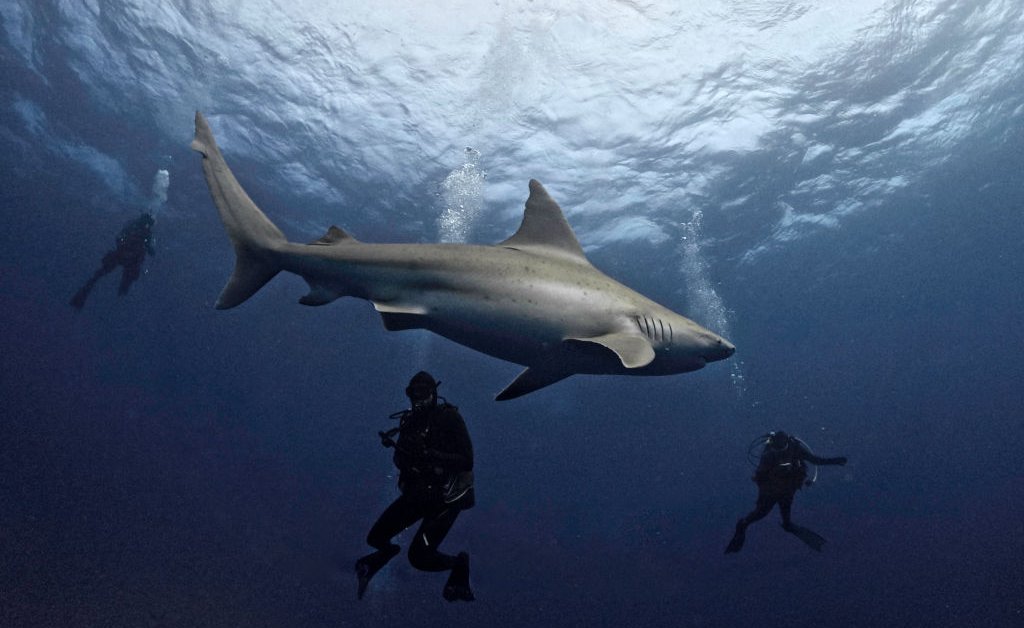Jaws And The Aftermath: Exploring The Film's Long-Term Impact On Shark Populations

Welcome to your ultimate source for breaking news, trending updates, and in-depth stories from around the world. Whether it's politics, technology, entertainment, sports, or lifestyle, we bring you real-time updates that keep you informed and ahead of the curve.
Our team works tirelessly to ensure you never miss a moment. From the latest developments in global events to the most talked-about topics on social media, our news platform is designed to deliver accurate and timely information, all in one place.
Stay in the know and join thousands of readers who trust us for reliable, up-to-date content. Explore our expertly curated articles and dive deeper into the stories that matter to you. Visit Best Website now and be part of the conversation. Don't miss out on the headlines that shape our world!
Table of Contents
Jaws and the Aftermath: Exploring the Film's Long-Term Impact on Shark Populations
Steven Spielberg's 1975 blockbuster, Jaws, remains a cinematic masterpiece, terrifying audiences with its suspenseful portrayal of a great white shark terrorizing a beach community. But the film's legacy extends far beyond the silver screen; it had a profound and lasting impact on public perception of sharks and, consequently, their populations. This article explores the complex relationship between Jaws and the subsequent decline in shark numbers, examining both the immediate and long-term consequences of the film's immense popularity.
The "Jaws" Effect: Fear and Misinformation
Jaws ignited a global fear of sharks, transforming them from fascinating predators into mindless killing machines in the public imagination. The film's portrayal, while undeniably effective storytelling, significantly contributed to the widespread misconception of sharks as inherently aggressive and dangerous to humans. This fear, fueled by sensationalized media coverage following the film's release, led to a significant increase in shark hunts and culls around the world.
Many coastal communities, spurred by panic and a desire to protect their beaches, launched aggressive shark eradication programs. These often involved indiscriminate methods, killing sharks indiscriminately regardless of species or size. This indiscriminate killing, fueled by the Jaws effect, had devastating consequences for already vulnerable shark populations.
The Long Shadow of Fear: Decades of Declining Numbers
The immediate aftermath of Jaws' release witnessed a dramatic spike in shark killings. While exact figures are difficult to obtain due to inconsistent reporting, evidence strongly suggests a significant negative impact on various shark species. This initial wave of fear didn't dissipate quickly. The film's cultural impact continued to shape public opinion for decades, contributing to a persistent negative perception of sharks that persists even today.
This negative perception, coupled with other threats like overfishing and habitat destruction, has led to a drastic decline in global shark populations. Many shark species are now critically endangered, facing extinction due to a combination of factors, with the Jaws effect playing a significant role in the initial wave of targeted killings.
Reframing the Narrative: Conservation Efforts and Education
In recent years, significant conservation efforts have been undertaken to protect shark populations. Organizations like the Pew Charitable Trusts and the Shark Conservation Society are working tirelessly to raise awareness about the importance of sharks in marine ecosystems and to combat the harmful misconceptions perpetuated by films like Jaws.
Educational initiatives focusing on shark biology, behavior, and the vital role they play in maintaining ocean health are crucial in changing public perception. These efforts highlight the ecological importance of sharks as apex predators and the devastating consequences of their decline. The narrative is shifting, from fear to understanding and respect.
Moving Beyond the Myth: A Call for Responsible Storytelling
While Jaws remains a cinematic landmark, its impact on shark populations serves as a cautionary tale. It highlights the responsibility filmmakers and media outlets have in shaping public perception and the potential for unintended consequences when fear-mongering narratives outweigh scientific accuracy. Today, responsible storytelling is critical in fostering a more nuanced understanding of sharks and inspiring conservation efforts. By understanding the legacy of Jaws, we can work towards a future where fear gives way to respect and protection for these magnificent creatures.
Further Reading:
- [Link to a reputable article on shark conservation]
- [Link to a scientific study on shark population decline]
Call to Action: Learn more about shark conservation and support organizations dedicated to protecting these vital marine animals. Your support can help change the narrative and ensure a healthier future for sharks.

Thank you for visiting our website, your trusted source for the latest updates and in-depth coverage on Jaws And The Aftermath: Exploring The Film's Long-Term Impact On Shark Populations. We're committed to keeping you informed with timely and accurate information to meet your curiosity and needs.
If you have any questions, suggestions, or feedback, we'd love to hear from you. Your insights are valuable to us and help us improve to serve you better. Feel free to reach out through our contact page.
Don't forget to bookmark our website and check back regularly for the latest headlines and trending topics. See you next time, and thank you for being part of our growing community!
Featured Posts
-
 Ex Nfl Player Ramzee Robinson Sues Kansas City Chiefs Alleging Racial Discrimination
Jun 18, 2025
Ex Nfl Player Ramzee Robinson Sues Kansas City Chiefs Alleging Racial Discrimination
Jun 18, 2025 -
 Hazardous Materials Investigation Madison Fire Department Responds
Jun 18, 2025
Hazardous Materials Investigation Madison Fire Department Responds
Jun 18, 2025 -
 Decisao Inesperada Jogador Deixa O Flamengo E O Mundial Para Assinar Com Outro Time
Jun 18, 2025
Decisao Inesperada Jogador Deixa O Flamengo E O Mundial Para Assinar Com Outro Time
Jun 18, 2025 -
 Controversy Phillies All Star Benched After Making Inappropriate Remarks
Jun 18, 2025
Controversy Phillies All Star Benched After Making Inappropriate Remarks
Jun 18, 2025 -
 Ex Kansas City Chiefs Worker Alleges Racial Discrimination In New Lawsuit
Jun 18, 2025
Ex Kansas City Chiefs Worker Alleges Racial Discrimination In New Lawsuit
Jun 18, 2025
